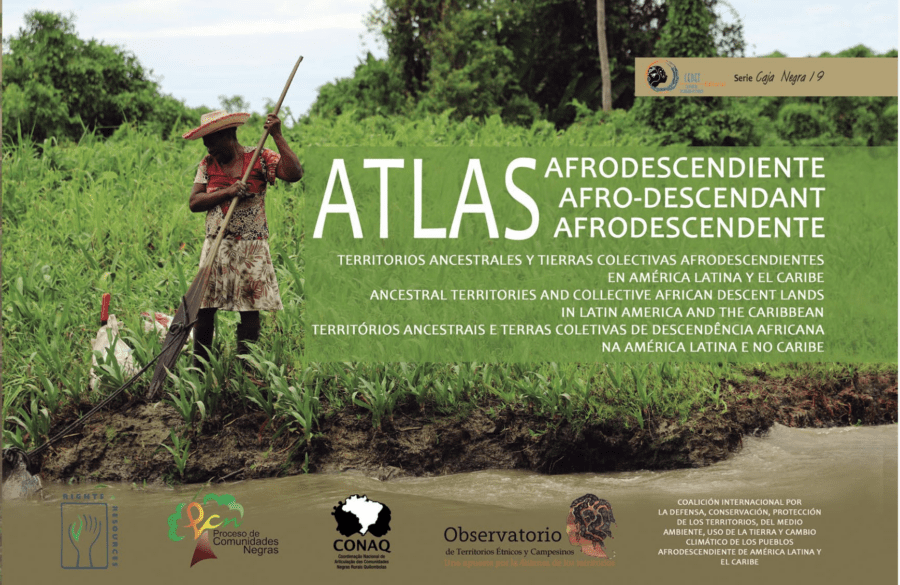Date: September 24, 2024
This Atlas of the ancestral territories, rural settlements, and collectively owned lands belonging to Afro-descendant Peoples in Latin America and the Caribbean is a product of organizations, leaders, activists, and academics involved in the Afro-descendant social movement in the Americas, the Rights and Resources Initiative (RRI), the Black Communities’ Process (PCN), and the Universidad Javeriana’s Observatory for Ethnic and Peasant Territories (OTEC).
The Atlas maps the territorial presence of Afro-descendant Peoples in 15 countries in Latin America and the Caribbean, the state of recognition of their territorial rights, their overlap with areas that are important for regulating and mitigating climate change, and their contributions to conservation efforts. We conceptualize Afro-descendancy as a collective agency subject with rights that extend beyond people.
Afro-descendant Peoples’ territories are currently violated and threatened, their natural resources are being plundered, and their traditional production practices and ancestral knowledge are being diminished. This Atlas attempts to give an account of the conditions in which these territories are found.
https://doi.org/10.53892/KKSL2510

